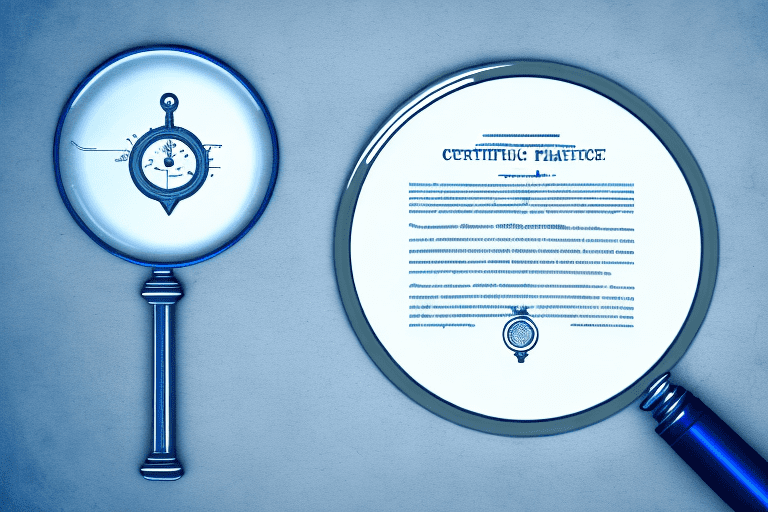Are you interested in a career as a registered patent agent? If so, this article will guide you through the process and requirements of becoming a patent agent. By understanding the role, educational requirements, the patent bar examination, the registration process with the United States Patent and Trademark Office (USPTO), as well as the career prospects and growth opportunities, you will be better equipped to pursue this exciting and rewarding profession.
Understanding the Role of a Patent Agent
A patent agent plays a crucial role in the field of intellectual property. They are responsible for assisting inventors and companies in obtaining patents for their inventions. Patent agents provide invaluable expertise in patent law, patent searches, and the patent application process. Moreover, they work closely with attorneys and inventors to ensure that the inventions meet the legal requirements for patent protection.
When it comes to the patent application process, a patent agent is the go-to professional. They have a deep understanding of the intricacies of patent law and are well-versed in the various requirements set forth by the United States Patent and Trademark Office (USPTO). This expertise allows them to guide inventors through the complex process of obtaining a patent, from conducting thorough patent searches to drafting and filing patent applications.
One of the key responsibilities of a patent agent is to conduct patent searches. This involves delving into existing patents and other sources of prior art to determine the novelty and patentability of an invention. By analyzing the existing body of knowledge, a patent agent can help inventors understand the potential patentability of their invention and identify any potential obstacles that may arise during the application process.
Once the patent search is complete and the invention is deemed patentable, the patent agent moves on to the next crucial step: preparing and filing the patent application. This is a meticulous process that requires attention to detail and a comprehensive understanding of the invention. The patent agent must accurately describe the invention, its unique features, and its potential applications in a clear and concise manner.
Throughout the patent application process, a patent agent works closely with inventors and attorneys to respond to office actions. Office actions are official communications from the USPTO that may require additional information, clarification, or amendments to the patent application. The patent agent plays a crucial role in addressing these actions and ensuring that the application meets all the necessary requirements for patent approval.
Skills Required for a Patent Agent
To excel in this profession, you must possess a unique set of skills. Strong analytical and problem-solving skills are essential for conducting patent searches and examining prior art. Attention to detail is crucial when drafting patent applications to ensure all necessary information is included.
Furthermore, a solid scientific or engineering background is highly beneficial for understanding complex technical concepts and accurately describing inventions in patent applications. A patent agent must be able to grasp the intricacies of the invention and effectively communicate its technical aspects in a way that is both accurate and understandable.
Good communication and interpersonal skills are vital for effectively collaborating with inventors and attorneys throughout the patent process. Patent agents often find themselves working closely with inventors who may have limited knowledge of patent law. It is the responsibility of the patent agent to guide them through the process, explain complex legal concepts, and ensure that their inventions are adequately protected.
Staying updated with the latest developments in patent law and industry trends is also crucial for a patent agent. The field of intellectual property is constantly evolving, and it is essential for a patent agent to stay informed about changes in laws, regulations, and industry practices. This allows them to provide the most up-to-date and accurate advice to inventors and companies seeking patent protection.
Educational Requirements for Becoming a Patent Agent
Achieving the educational requirements is a crucial step towards becoming a registered patent agent. However, it is important to understand the specific degrees and certifications that are essential to pursue this career path.
Essential Degrees and Certifications
In order to qualify for the patent bar examination, which is a prerequisite for becoming a patent agent, you must hold a bachelor’s degree in a scientific or technical field such as engineering, biology, chemistry, or physics. These fields provide the necessary foundation for understanding the intricacies of inventions and their technical aspects.
Certain degrees in computer science or mathematics may also qualify, as they involve analytical thinking and problem-solving skills that are highly relevant in the field of patent law. However, it is important to note that a strong background in science or engineering is often preferred by employers and can enhance your credibility as a patent agent.
Moreover, earning a Juris Doctor (JD) degree from an accredited law school can broaden your opportunities as it allows you to practice patent law as a patent attorney in addition to being a registered patent agent. This combination of legal and technical expertise can be highly valuable in providing comprehensive patent services to clients.
Importance of a Science or Engineering Background
A strong foundation in science or engineering is highly beneficial for understanding the complex technical aspects of inventions. Patent agents with a science or engineering background are able to grasp the intricacies of innovative technologies and effectively communicate with inventors.
Furthermore, having a deep understanding of the subject matter allows patent agents to analyze prior art more efficiently. Prior art refers to existing patents, scientific publications, and other relevant information that may impact the patentability of an invention. By being well-versed in the technical field, patent agents can identify potential obstacles and draft accurate patent specifications that comply with the legal requirements.
If your undergraduate degree is not in a scientific or technical field, it may be beneficial to pursue additional coursework or gain practical experience in a related field to strengthen your knowledge and credibility as a patent agent. This can include taking relevant science or engineering courses, participating in research projects, or working in a technical role within a company.
In conclusion, the educational requirements for becoming a patent agent involve obtaining a bachelor’s degree in a scientific or technical field, such as engineering or biology, and passing the patent bar examination. Additionally, earning a Juris Doctor degree can provide additional opportunities in the field of patent law. A strong science or engineering background is highly advantageous for understanding complex inventions and effectively communicating with inventors.
The Patent Bar Examination
The patent bar examination is a crucial step in the journey towards becoming a registered patent agent. It is designed to test your knowledge and understanding of patent law, rules, and procedures.
Preparing for the Patent Bar Examination
Preparing for the patent bar examination requires diligent study and preparation. Numerous resources, including study guides, practice exams, and online courses, are available to help candidates prepare for the exam. It is important to allocate sufficient time for studying and to create a structured study plan to cover all the necessary topics.
When preparing for the patent bar examination, it can be beneficial to join study groups or seek guidance from experienced patent agents or attorneys. These individuals can provide valuable insights and support during the preparation process. They can offer tips and strategies for approaching the exam, as well as share their own experiences and knowledge of patent law.
Furthermore, attending seminars or workshops specifically tailored to the patent bar examination can be highly beneficial. These events often feature expert speakers who provide in-depth explanations of complex patent law concepts and offer practical advice on how to approach the exam.
Understanding the Examination Structure
The patent bar examination is administered by the United States Patent and Trademark Office (USPTO) and consists of multiple-choice questions. The examination primarily covers topics related to patent law, patent prosecution, and patentability requirements.
During the exam, you will be tested on your knowledge of patent statutes, case law, and the Manual of Patent Examining Procedure (MPEP). Familiarizing yourself with these resources will greatly enhance your chances of success. It is crucial to thoroughly study and understand the content of these materials, as they form the foundation of patent law.
It is important to note that the exam is computer-based and timed. This means that time management is a key factor in achieving a successful outcome. Practicing with sample questions and familiarizing yourself with the exam format will help you develop effective strategies for answering questions efficiently within the given time constraints.
Additionally, it is essential to stay up-to-date with the latest developments in patent law. The field of intellectual property is constantly evolving, and new laws, regulations, and court decisions can have a significant impact on patent prosecution. Keeping abreast of these changes will ensure that your knowledge remains current and relevant.
In conclusion, the patent bar examination is a challenging but rewarding endeavor. By dedicating sufficient time to study, seeking guidance from experienced professionals, and familiarizing yourself with the exam structure and content, you can increase your chances of passing the exam and becoming a registered patent agent.
The Registration Process with the United States Patent and Trademark Office (USPTO)
Once you have successfully passed the patent bar examination, you can proceed with the registration process to become a registered patent agent.
Application Procedure for USPTO
To register with the USPTO, you will need to submit an application through the Office of Enrollment and Discipline (OED). The application process involves providing relevant personal and educational information, including transcripts, academic degrees, and exam results.
Additionally, you will need to disclose any disciplinary actions, criminal convictions, or professional misconduct incidents that may impact your eligibility. The USPTO carefully evaluates each application to ensure that only qualified individuals are granted registration.
Maintaining Your Registration with USPTO
Once registered, it is essential to maintain your good standing as a patent agent. This includes adhering to the USPTO’s rules and regulations, completing the required continuing education credits, and maintaining a high level of professionalism and ethical conduct.
Failure to comply with the USPTO’s requirements may result in disciplinary action or the revocation of your registration. Therefore, it is vital to stay informed about any updates or changes in the USPTO’s policies to ensure continued compliance.
Career Prospects and Growth as a Patent Agent
A career as a registered patent agent offers diverse opportunities and the potential for growth in the field of intellectual property.
Job Opportunities for Patent Agents
Patent agents can find employment in various settings, including law firms, corporations, government agencies, and research institutions. They play a vital role in helping inventors protect their inventions and assisting attorneys in patent litigation and infringement cases.
With the increasing focus on innovation and the growth of technology-based industries, the demand for patent agents is expected to continue to rise in the coming years. This presents exciting job prospects for individuals entering or considering a career transition into the field.
Continuing Education and Career Advancement
Continuing education is essential for patent agents to stay updated with the ever-evolving landscape of intellectual property and patent law. Engaging in professional development opportunities, attending seminars, and participating in industry-specific courses can enhance your knowledge and expand your expertise.
Additionally, gaining experience in specialized areas of intellectual property, such as biotechnology or software patents, can open doors to advanced career opportunities, increased responsibilities, and higher earning potential.
By following the steps outlined in this article, you will be well on your way to becoming a registered patent agent. Remember, each step requires dedication, perseverance, and a genuine passion for intellectual property. Embrace the opportunity to contribute to innovation and protect the valuable inventions of inventors across various industries.











